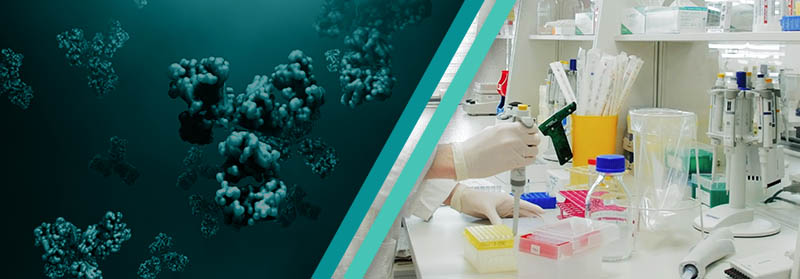Time is of the essence in today’s realm of drug development, and a failed assay or behind-schedule biologic project can cost significant time and patient health or even lives if not addressed with immediacy. If you wind up with a program that has stalled or gone off schedule due to COVID-19 challenges or other setbacks, it is vital to team up with a CRO laboratory that is capable of handling quick turnarounds and rescue projects. At BioAgilytix, we take pride in our industry reputation of having an aptitude for getting studies on track quickly, and have been trusted by many sponsors to provide the quick turnaround their program needs.
Our expertise in rescue projects is most evident in our past successes. One recent example comes from a study we conducted for a biopharmaceutical company that came to BioAgilytix needing to develop an anti-drug antibody (ADA) assay for a monoclonal antibody (mAb) binding to a target protein which contained the dimerization interface.
Addressing False Positive Challenges
Dimerization of soluble targets is a known issue in the field of immunogenicity. It can lead to high signals which may lead to an incorrect interpretation of the data as being ADA induced. For this particular Phase II study, a prior attempt by another CRO to use a simple bridging assay resulted in 80% ADA incidence, and a second attempt to manage target interference yielded sensitivity and drug tolerance results that were insufficient to meet regulatory requirements.
By this time, many resources had been spent with no useable results and the entire drug development program was at risk. Under an extremely tight timeline, BioAgilytix took on the project and created a strategic plan to overcome the target interference challenge and validate if the high rate of immunogenicity was due to target dimerization rather than the drug candidate itself.
Known Complexities Call for Novel Methods
We knew that it would take a creative approach to give the study the turnaround it needed, and decided to apply a novel method using heat treatment and acid dissociation. While heat treatment has been used for many different assays to mitigate interference, it had never been tested for a target dimerization issue before. Our scientists came up with a novel way to apply the technique for this assay and put it into practice.
The optimal time and temperature of sample treatment was determined in collaboration with the sponsor, and target interference was tested by adding up to 2,000 ng/mL of target in both monomer and dimer forms with no observed interference. Heat-treated samples were incorporated into an acid capture elution (ACE) method to achieve drug tolerance of at least 100 µg/mL. As a result, the assay was able to detect anti-drug antibodies at 100 ng/mL in the presence of greater than 100 µg/mL of added drug for multiple indications.
Delivering Results in Short Order
Our team was able to develop the ADA assay to the required levels of drug and target tolerance and sensitivity within the tight timeframe allotted. Assay qualification and validation followed immediately after development and the assay was used to analyze clinical samples for multiple indications such as gastric cancer, ulcerative colitis, and Crohn’s disease. In these samples, the incidence of immunogenicity was 5%-10% – a significant improvement from the previous method’s inflated 80% incidence.
By showing that the prevalence of immunogenicity was significantly lower than original estimates, a study that was on the verge of cancellation has now progressed to multiple clinical studies. This is just one example of how our team has applied scientific ingenuity alongside a high standard of quality to help our customers solve complex bioanalytical challenges and deliver timely results to keep their promising studies on track.
When it comes to rescue projects, we enjoy problem solving and are up to your challenge. If you have a stalled or slipping large molecule study that needs expert turnaround support, speak to one of our scientists today.
